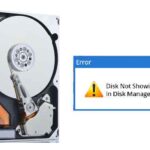As data analysis and Big Data technologies are used more and more, the hype around data scientists is growing. They are expected to radically change the way we do business in the near future. At the start of a project, data scientists are constantly experimenting with deductive methods or hypothesis testing to find business problems. When problems are revealed more fully, inductive methods or methods of searching for patterns begin to be applied.
Why do you need a data science specialist
The activities of data scientists significantly improve the usability, the availability of data science and consulting company that is collected by, and also improves the rhetoric around them.
It is well proven that data scientists can solve specific business problems. For example, in the same book by Booz Allen Hamilton, it is indicated that by increasing data utilization by 10%, a company can increase its productivity by 49%. With a data availability improvement of only 10%, the potential ROA (return on asset) in a company can increase by 42%. Organizations making the most of the potential of big data are reporting 241% ROI (return on investment) growth. And leveraging data analytics across the company increases ROI by 1000%.
Signs of a good data scientist
Data scientists can handle events such as real-time data streaming, which has become a popular and efficient source of data processing for enterprises. They know how to install Kafka on Windows and handle all integrations and management of the architecture, event streams, Kafka broker, and more. They coordinate with developers to ensure that all servers and data streams function smoothly.
In such a society, we will all become a bit of a data scientist – a specialist will play a leading role:
- A data scientist knows how to turn data into concrete actions. “The ability to organize processes, the correct operation of tools and technologies, so that people and machines work together and transform data into insights, plays a big role.”
- A data scientist creates products based on data. Such products “provide other people in the company with information on which to act. These employees do not see the data that underlies such a product and their analytics. Such products can be buy or sell strategies for financial instruments, a set of actions to increase the volume of production or to improve product marketing. “
- Business needs a data scientist to keep up with competitors in the future. “The leadership of many organizations makes decisions instinctively, relying on the arguments of the one who speaks loudest in the meeting or makes the most convincing case. In the emerging data-centric economy, winners and losers will be determined by the success of data scientists. ”
- The data scientist develops his skills as the company develops. “The development of organizations in the direction of working with data takes place in several stages. First, companies begin to collect data, then they begin to use it to describe operating processes, look for patterns in them, and predict events based on them. The last step is getting advice on how to do your data-driven business. The movement along these stages can be characterized as movement from the flood of the data to the maturity of their use. At each stage, analytical tasks become more difficult, and data analysis skills become broader. To be successful, an organization must reach maximum maturity – the last stage. But it is possible to benefit from any of them. “
- Data scientists should be team players. “Data scientists need a broad perspective on the company they work for. Their leaders must meet with leaders from other departments to understand the complexities they face, discover additional data, connect disparate parts of the business, and achieve broad employee engagement in their initiatives. ”


















